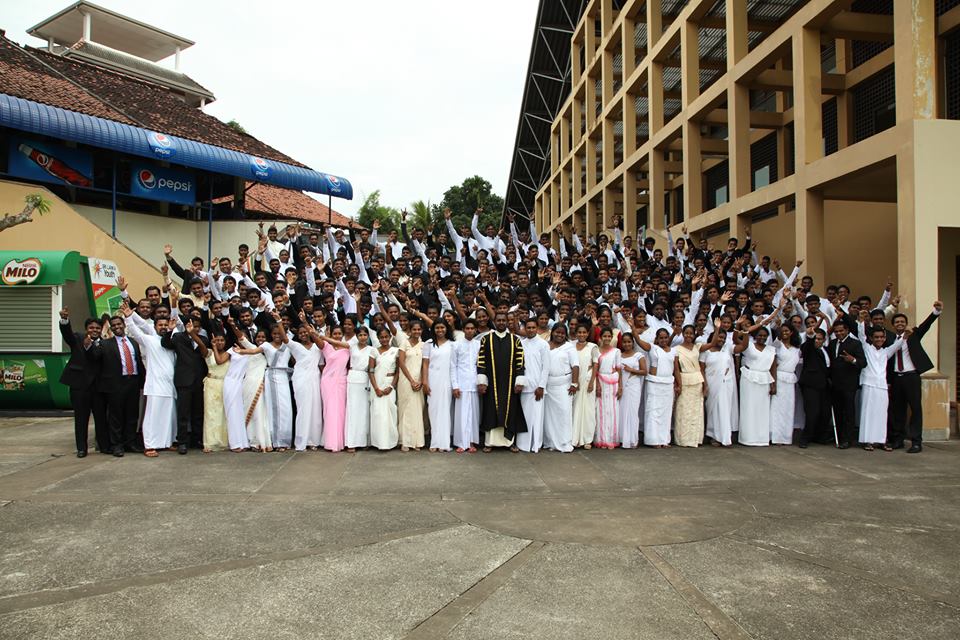Context: In Sri Lanka, the population of youth aged 15 to 29 years is estimated at 4.8 million, which makes up more than 23 per cent of the total population. In 2015, the overall labor force participation rate for people aged 15 years and above was 53.6 per cent, where the male and female participation rates were 75.4 per cent and 35.2 per cent, respectively. Income inequality has been exacerbated, with the top 20 percent richest earning 54.1 percent of total household income, while the poorest 20 per cent earning only 4.5 percent of it. It is also estimated that more than 80 per cent of the poor lives in rural areas where there are large regional disparities in terms of education, health and employment opportunities. Many of areas in Sri Lanka including urban slums as well as rural areas and war-affected regions still remain underdeveloped.
Implementation of programme/ initiative: Youth Parliament of Sri Lanka serves as a platform for the Sri Lanka Youth community to come together for the unity of purpose of empowering them to participate in leadership and innovation process by networking with professionals and each other to increase the realization as a generation of youth that are responsible, democratic, respectful and accountable. The vision of the Sri Lanka Youth Parliament (SLYP) is to convert the Sri Lankan Youth community to a responsible, respectful and accountable democratic social group. The first session of Sri Lanka Youth Parliament (SLYP) commenced on the May 23, 2010, commemorating the International Year for Youth at the Sri Lanka Youth Center Auditorium in Maharagama. The main objectives of the Sri Lanka Youth Parliament are to develop leadership skills of Sri Lankan youth community and create a conducive atmosphere for them to recognize their talents and competencies; to develop the practical knowledge in youth community on issues and challenges in the political sphere; and to develop the skills in recognizing things correctly, logical thinking and listening skills. The SLYP creates a platform that brings youths together from different parts of the island and empowers them through the participation in simulated parliamentary sessions. This allows them to take up the role of decision makers and gives them first-hand experience on the democratic decision-making process. Moreover, the SLYP facilitates intercultural communication and understanding while enabling the youth to play a leadership role in identifying and addressing the needs of the communities they live in. With the goal of building a second generation of proficient leaders and ensuring the constructive involvement of youth in the development agenda of the country, the SLYP consists of 225 members where 165 are elected through an island wide democratic election campaign. The majority out of all the members of the Youth Parliament are being elected through an election process that is constituted to be voted for by the members of the youth clubs while the candidates also should mandatorily represent the youth clubs of their respective districts. 65 other members are being selected through a highly competitive interview process based on their academic, leadership and other extracurricular qualifications and skills. The SLYP has 7 committees and ministries including Ministry of Education, Ministry of Health, Ministry of Media and communication, Ministry of Environment, Ministry of Cultural affairs, Ministry for Sports and Ministry of International Solidarity.
Main challenges: As Sri Lanka is experiencing a rapid economic and social growth, we strongly encourage youth to participate in the decision making process. However, we still lack civic participation and political engagement. Lack of opportunities for youth to address burning issues in Sri Lanka is another challenge. Authorities want to stick to their own agendas rather finding creative and innovative alternatives. In this sense, youth are not mainstreamed in the decision making process at every level.
Results achieved: After three annual youth parliaments, around 1,000 Sri Lankan youth and 20,000 youths are directly and indirectly educated and trained about the Parliament proceedings, rules and regulations. Approximately 1,500 youth-led service projects were proposed and implemented during the 2015-2016 period, and the projects benefited more than 262,500 people nationwide. By allowing the youth to participate in the decision making process, the SLYP fostered social harmony, mutual understanding and reconciliation among the Sri Lankan youth communities. A Hanzard report (Outcome report) is drafted at every parliamentary session and sent to the National Parliament for consideration. The members of Parliament and ministries of Democratic Socialist Republic of Sri Lanka are informed of the insights and decisions made in the Sri Lanka Youth Parliament. The SLYP not only provides experiences and knowledge to enhance democratic political environment, but develops leadership and practical skills among youth.
Moving Forward: The youth parliament should be structured and institutionalized, in order for young people to actively participate and engage in decision making process. Every member of the SLYP should be guaranteed with equal opportunity to vote and participate in the parliamentary proceedings for community development. Government officials and politicians should pay more attention to the voices of young delegates and recognize the youth as their partners and future leaders who contribute to the development of the country. In addition, participation of young women whose representation was only 8% in the 3rd SLYP needs to be expanded.
Replicability: Creating an online voting system will be more efficient and economically sound, since it enables more people to vote with less time and less costs. Moreover, allowing all youths to participate in votes and elections will help create more effective and transparent democratic setting.
References:
http://www.nysc.lk/aboutParliament_e.php
http://www.nysc.lk/youthtalent_e.php
Project Details
Date: July 28, 2017
